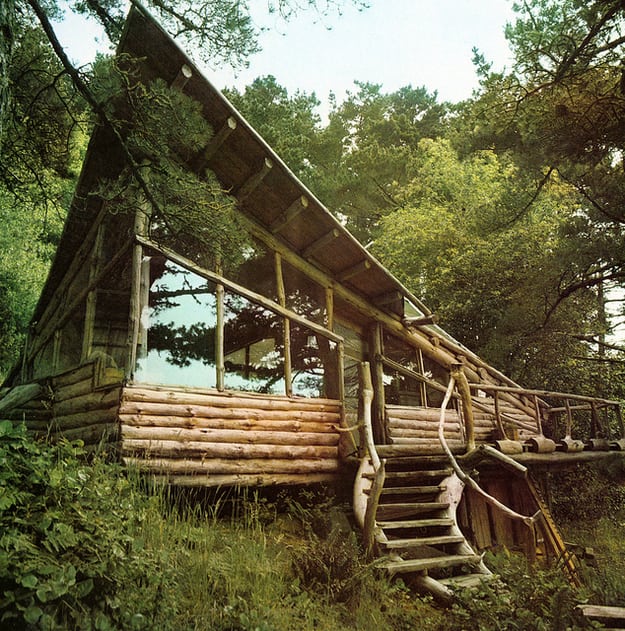The country that took in the most refugees in the world last year was Uganda. It is said to have one of the most generous refugee policies in the world, even giving new arrivals their own land. But how do you turn a plot of bush into a home, with nothing more than a machete?
Three, four, five, six, seven. A man in a blue anorak reads the numbers off his clipboard.
Women line up, many with babies strapped to their backs, a few with some belongings.
“Group two: where are you?” the man with the clipboard calls. “Come.”
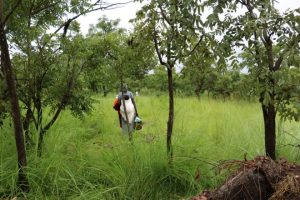
Maybe a dozen women follow him up the hill.
It’s raining, the women’s flip flops couldn’t be less suitable for the rocky mud track.
Part way up the hill, the man stops.
He gestures to the woman at the front of the queue.
“This is your plot,” the man says.
“No English,” she says.
He laughs.
“You’ll see,” he says – in English – and strides off the mud track into the bush.
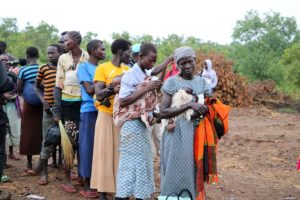
The other women watching try to explain to her what’s going on. As the man paces 50m to show her where the boundary of her land is, she follows, pushing through the knee-high grass in her long blue dress, a baby tied to her back. She lifts her bag above the bushes and ducks under tree branches.
This is Ugandan refugee policy in action in Rhino Extension camp, one of several settlements in north-western Uganda which have so far received more than a million people fleeing South Sudan’s civil war. Said to be the country with the most generous refugee policy in the world, Uganda gives new arrivals land. They’re encouraged to make a life there, to farm – aid agencies give them seeds to grow crops. Some get goats.
But first they have to build a home.
How do you build a house?
That’s what I’m thinking. I wonder if that’s what the woman in blue is thinking.
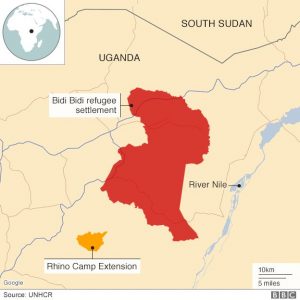
She’ll be given a sheet of plastic, some wooden poles and rope. That’s apparently what you need to build a home here. And a machete. Because before she builds anything, she’ll have to clear the wild bush land.
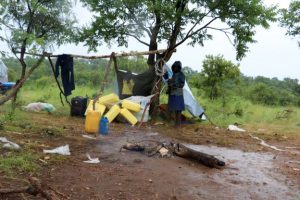
She smiles uncertainly – looks, frankly, bemused – as the line of women and children trudge on up the hill, leaving her behind.
